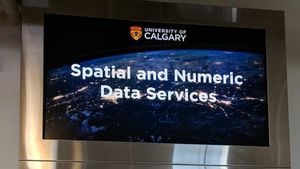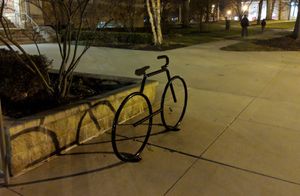Here is Grainne Conole, professor of e-learning at the Open University writing about academic papers, conference papers, and blogging:
Coming back to the question of which represents academic discourse – to my mind it’s all three – in different ways writing a paper, giving a presentation and blogging all help me to formulate and take forward my thinking on a particular topic, a means of meaning making and transformation of the raw ‘data’ to new understandings – surely that’s one of the cornerstones of what being an academic means? [e4innovation.com]
And here is how she distinguishes between those modes of academic disclosure:
So the function and nature of the three media seems to be:
- Academic paper: reporting of findings against a particular narrative, grounded in the literature and related work; style – formal, academic-speak
- Conference presentation: awareness raising of the work, posing questions and issues about the work, style – entertaining, visual, informal
- Blogging – snippets of the work, reflecting on particular issues, style – short, informal, reflective
Here is Dani Rodrik, a Professor of International Political Economy at Harvard, commenting on an earlier post of his where he queried whether the high opportunity costs of blogging (think of all those other things that could get done if you did not use the time blogging!) would drive out high quality economics blogs. No, he concludes:
And second, in my trip to Nottingham I was simply stunned by how many people reported reading my blog. Not only that, people actually remembered my posts–some going quite a while back. With this kind of positive feedback, along with others like this, it is hard to imagine closing the operation down.
Not so incidentally, one of the unexpected scholarly benefits of having a blog is that it is like keeping an intellectual journal. You get an idea, you jot it down in your blog. Some months later, you vaguely remember having had the idea and you google your own blog to recover it. I am not kidding: I google my own blog all the time…
And here is the evidence: the first third of my talk at Nottingham was based on a couple of blog posts from a few weeks back (this and this). So maybe that someone also over-stated the bit about opportunity costs…[Dani Rodrik’s weblog]
It is interesting to see them both discuss blogging as an integral part of their academic lives. And their blogging is an important record of thinking about the academic problems they address. And an indication of their academic networks.
I regularly look at the blogs of several folks from the Open University: Tony Hirst‘s, John Naughton‘s, and now Grainne‘s (with whom I used to interact years ago when she was director of ILRT and I of UKOLN). I will occasionally land on Martin Weller‘s and am peripherally aware of Marc Eisenstadt‘s.
Ever since my (economist) colleague Brian Lavoie introduced me to Greg Mankiw’s blog, I have intermittently followed it, as well as Rodrik’s. They occasionally refer to their colleague George Borjas’s blog, another Harvard economics professor. Of course there are some pretty high profile economics blogs, including blogs from the Freakonomics authors and, recently, Paul Krugman, both hosted by the New York Times. And there is the prolific Gary Becker, Nobel prize winning economist, at the Becker-Posner blog. I have found Mankiw and Rodrik interesting because of the general mix of light material, commentary on theirs’ and their colleagues’ work, and their high-level and engaged policy perspectives. The general nature of the blog discourse, to borrow Grainne’s word, in that community is absorbing to watch.
Rodrik notes that his blog material appears to have enduring appeal for colleagues. Indeed, the intrinsic interest of the blog output of both the Open University and the Harvard bloggers, and its relation to their academic work, and their broader communities of interest, means that this is probably more generally true.
The blogging platforms used by these people vary. Sometimes they may be institutionally based, more often they will be on one of the main blog hosting sites. While they may be of enduring interest, little thought has probably been given to thinking about their longer term persistence.
Which brings me to my question. Universities and university libraries are recognizing that they have some responsibility to the curation of the intellectual outputs of their academics and students. So far, this has not generally extended to thinking about blogs. What, if anything, should the Open University or Harvard be doing to make sure that this valuable discourse is available to future readers as part of the scholarly record?



